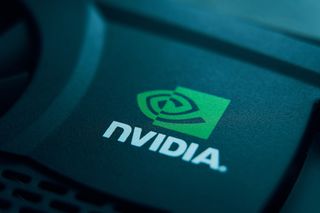Nvidia ready to take on Intel in the data centre market
Chief executive Jensen Huang sets out plans for "data centre scale computing" as Arm takeover speculation grows

Nvidia has laid out plans to topple Intel in the data centre market with some early signs of success coming from its second-quarter revenues.
Chief executive Jensen Huang told the Financial Times that the US firm wants to become the main supplier of the core technologies that power large-scale data centres. He said the company was planning to supply "the full technology stack needed to run data centres".
Huang believes the company's future lies in "data centre scale computing", an area it has made significant investments in. Earlier in the year, it shelled out $7 billion to acquire Mellanox Technologies, a firm that makes critical components for modern data centres, such as high-speed interconnect links between servers and storage.
The company has enjoyed initial signs of success, as data centre revenue has increased by 167% over the year, outperforming its gaming business for the first time. The data centre unit brought in $1.75 billion compared to $1.65 billion for gaming. Mellanox also contributed 14% of Nvidia's overall revenue for the fiscal second quarter.
The company's graphics processing units (GPU), originally developed to handle video streams, are widely used as computing engines to training modern AI system, making them a key component in data centres. As a result, the only area Nvidia now falls short in terms of data centre tools is in traditional computing cores (CPUs).
That could be solved with the acquisition of UK chipmaker Arm, which Nvidia has been heavily linked to in recent months. The Cambridge firm's designs are thought to be a key weapon to compete with Intel in the data centre space.

The trusted data centre
Best practices and business results for organisations based in Europe
Huang did not reveal any information regarding a potential acquisition of Arm, but he did go into detail about Nvidia's "long-term" partnership with the UK chip manufacturer and the many services they collaborate on.
Get the ITPro. daily newsletter
Receive our latest news, industry updates, featured resources and more. Sign up today to receive our FREE report on AI cyber crime & security - newly updated for 2024.
"They're really great guys, and one of the special [things] about the Arm architecture that you know very well is that it's incredibly energy-efficient, and because it's energy-efficient, it has the headroom to scale into very high-performance levels over time," he said.
Arm is currently owned by SoftBank, which acquired the chipmaker in 2016 for £32 billion, and any sale of the company will be down to its parent companies "bungled business strategy", according to Arm's former president. Speaking to the Financial Times, Tudor Brown, who left the firm in 2012, said SoftBank had "spent money on things that clearly weren't going to make money in the short term".
Bobby Hellard is ITPro's Reviews Editor and has worked on CloudPro and ChannelPro since 2018. In his time at ITPro, Bobby has covered stories for all the major technology companies, such as Apple, Microsoft, Amazon and Facebook, and regularly attends industry-leading events such as AWS Re:Invent and Google Cloud Next.
Bobby mainly covers hardware reviews, but you will also recognize him as the face of many of our video reviews of laptops and smartphones.





